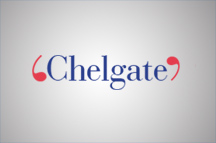In its new climate regulation, the European Union has established a model for future cross border cooperation between the EU, UK and US.
The European Commission recently published its package of new regulations that will shape Environmental and Energy policy for the next several decades. Called Fit for 55, the ultimate aim is to reduce emissions by 55% by 2030 and 100% by 2050. A major part of this package of proposals is the ReFuel Aviation regulations, aimed at the aviation industry. One significant new policy in ReFuel are the new rules mandating the use of Sustainable Aviation Fuels (SAFs) for all commercial airlines landing planes in the European Union. However, when it comes to certifying the process by which SAFs are made, the Commission has decided not to set up its own testing protocols, choosing instead to accept the assessment and certification of the American Society for Testing of Materials (ASTM). This represents a significant departure for the European Union, which has been very focussed on establishing its processes for emissions testing in other parts of the transport industry.
The reason the Commission are happy to embrace international cooperation when it comes to SAFs is because the industry is so much further behind than other sectors. The technology and resource availability are nowhere near the necessary level to have the impact the EU clearly wants. So the EU has decided that it is happy to work with authorities in the US and maybe, in the future, even the UK in order to remove as many barriers as possible to the nascent SAF industry. As the Commission puts it in the ReFuel file, the certification of new pathways is “a rigorous and lengthy process that involves significant financial, time, logistical and human resources”, which can be a barrier, especially to small and medium-sized producers.
The European Union sees itself as the world leader of climate regulation. So this decision is in stark contrast to their past decisions in other parts of the transport industry. Previously, they have put significant time and resources into building up their testing capabilities, working with experts and industry to develop in house protocols for testing for GHG and different particulates, spurred on by the emissions scandal in 2015. So now for them to decide to not be involved in determining the suitability of new SAF pathways is a concession to expediency, but one that could indicate an openness from the EU to future cross border collaborations, particularly on technical issues.
The Commission has even suggested that the EU could even provide support to EU SAF producers in their engagement with the ASTM. This will probably be necessary, and the Commission has suggested that it could act as a contact point between the EU based SAF producers and the ASTM, and perhaps create its own clearinghouse at some point in the future.
So the EU Commission has acknowledged there are international systems in place to underpin their certification accreditation and will work with them to determine their future policies. The question is, does this represents a glimpse of a possible future relationship between the EU and UK in the formation of European transport regulation?
The EU and UK technical/engineering teams have always worked closely together and more successfully than politicians have. There was a fear that Brexit would cancel these relationships and that technical people either side of the channel tunnel will efficiently replicate each other’s work due to the breakdown of relations. The ReFuel offers hope that the EU will work with the UK on these really technical questions. So, in those areas where the UK chose to be a genuine world leader there is a chance new arrangement will be put in place to ensure collaboration, even if such collaborations prove more difficult on the political level.
by George Carr, Public Affairs Executive












